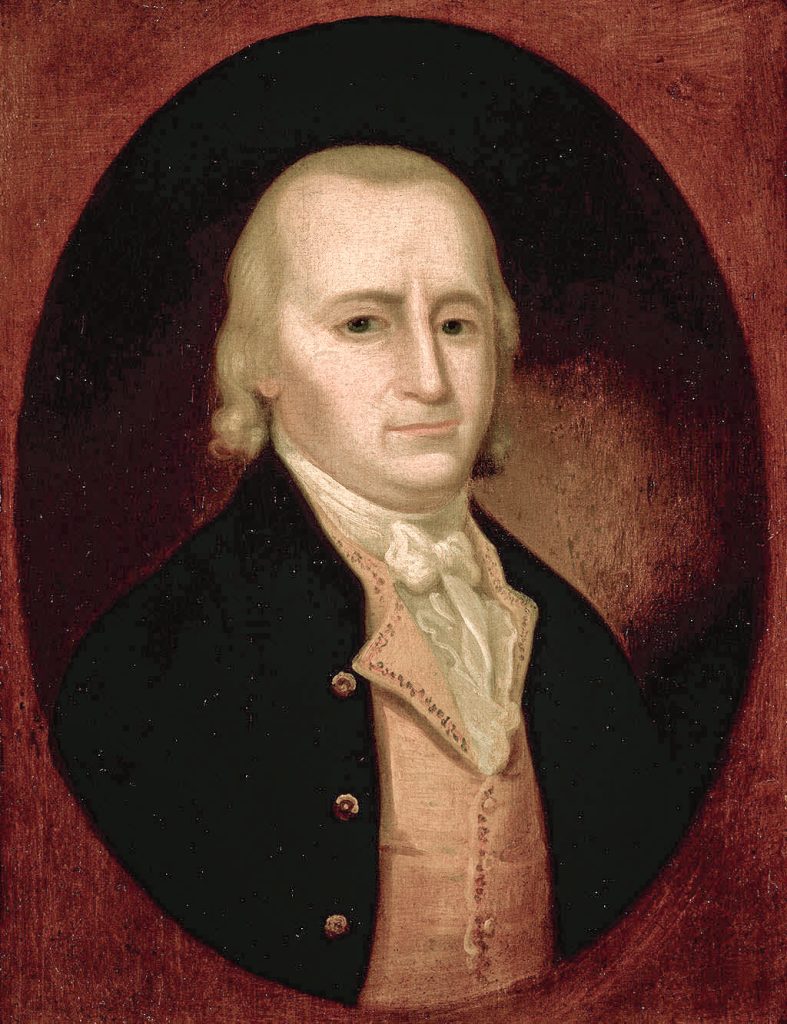An immigrant from the Rhineland of modest origins, twenty-year-old Jonas Phillips arrived in Charleston in 1756. He came, most likely, as an indentured servant to Moses Lindo, a Sephardic dealer in indigo.
After working off his contract, Phillips made his way up to the New York frontier, to Albany, main theater of the Seven Years War then being fought between the British and the French. He set himself up in business and achieved the status of freeman in Albany. During this period, he also began his engagement with Masonry, one of the first American Jews to do so.
In 1761 Phillips left Albany for New York City where, the following year, he was married to Rebecca Machado, daughter of the late David Mendez Machado, who had been hazzan of Shearith Israel. The marriage proved a propitious one; it would not only result in an amazing twenty-one births, but, more immediately, through friends of her father’s, provided the now bankrupt Phillips with employment as a shochet.
He would not long remain satisfied with the thirty-five pound a year salary and soon established himself as an auctioneer. In 1770 Phillips was one of ten Jewish signers of the New York Non-Importation Agreement, and by 1774 he had moved his family to Philadelphia. Phillips prospered as a merchant during the Revolution and served in Bradford’s Battalion of the Philadelphia Militia.
In 1783 Phillips, along with Gershom Mendes Seixas, Barnard Gratz and Hyam Salomon, petitioned the Pennsylvania Council of Censors to remove a clause from the state constitution requiring a Christian oath to hold public office. Although the clause would remain until 1790, Phillips again in 1787 protested the provision, this time to Constitutional Convention at Philadelphia. “All men,” Phillips boldly told the convention, “have a natural right to worship Almighty God according to the dictates of their own conscience and understanding.” This he proclaimed unaware that the convention had already passed the provisions in Article Six of the Constitution barring the requirement of a religious test in order to hold office.
Phillips was also a leader of Philadelphia’s Jewish community and directed the construction of the first building for congregation Mikveh Israel, where he was later elected parnas. Phillips seems to have had a falling out with the synagogue later in life and spitefully stipulated in his will that he be buried in New York.
Among Phillips’ numerous children we find Dr. Manuel Phillips, Rachel Machado Phillips Levy, Naphtali Phillips, Aaron Phillips and Zalegman Phillips, while grandchildren include Uriah P. Levy, Jonas Altamont Phillips and Henry Mayer Phillips.
